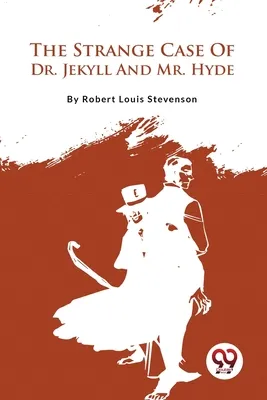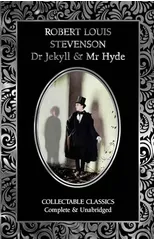The Strange Case of Dr. Jekyll and Mr. Hyde
(Autor) Robert Louis StevensonRobert Louis Stevenson, a Scottish novelist, wrote the Gothic tale The Strange Case of Dr. Jekyll and Mr. Hyde in 1886. It centers on London-based attorney Gabriel John Utterson, who looks into several unusual incidents. Gabriel John Utterson and Richard Enfield are traversing a huge home. Enfield witnessed Edward Hyde trampling a little girl. He had a menacing appearance. Hyde offered Enfield a check that was endorsed by a guy who was eventually identified as Dr. Henry Jekyll. A butler witnesses Hyde beating another of Utterson's patrons, Sir Danvers Carew, to death and leaving behind a broken cane. They discover a letter he sent to Utterson in which he confesses to having become the terrifying monster, Hyde. When Utterson and Mr. Poole break into the lab, they discover Hyde's body inside, where he appears to have committed himself. Lanyon deteriorated and died as a result of the trauma of witnessing his alter persona. One of the serum's ingredients eventually ran out, and subsequent versions made from fresh supplies were unsuccessful. Jekyll penned a detailed record of the events and locked himself in his laboratory intending to keep Hyde imprisoned. As Poole and Utterson broke down the door, Jekyll committed suicide by poison after realizing that he would remain as changed as Hyde.
Robert Louis Stevenson
Robert Louis Stevenson was a Scottish novelist, poet, and essayist, known for his adventurous and imaginative storytelling. His most notable works include "Treasure Island," "Strange Case of Dr Jekyll and Mr Hyde," and "Kidnapped." Stevenson's writing style is characterized by vivid descriptions, well-crafted plots, and a keen sense of suspense.
Stevenson made significant contributions to the genres of adventure fiction and Gothic literature, with his works exploring themes of duality, identity, and the human psyche. His most famous work, "Treasure Island," is a classic tale of pirates, treasure hunts, and moral ambiguity that has captivated readers of all ages for generations.
Overall, Robert Louis Stevenson's impact on literature is undeniable, as his works continue to be celebrated for their enduring appeal, timeless themes, and masterful storytelling.




